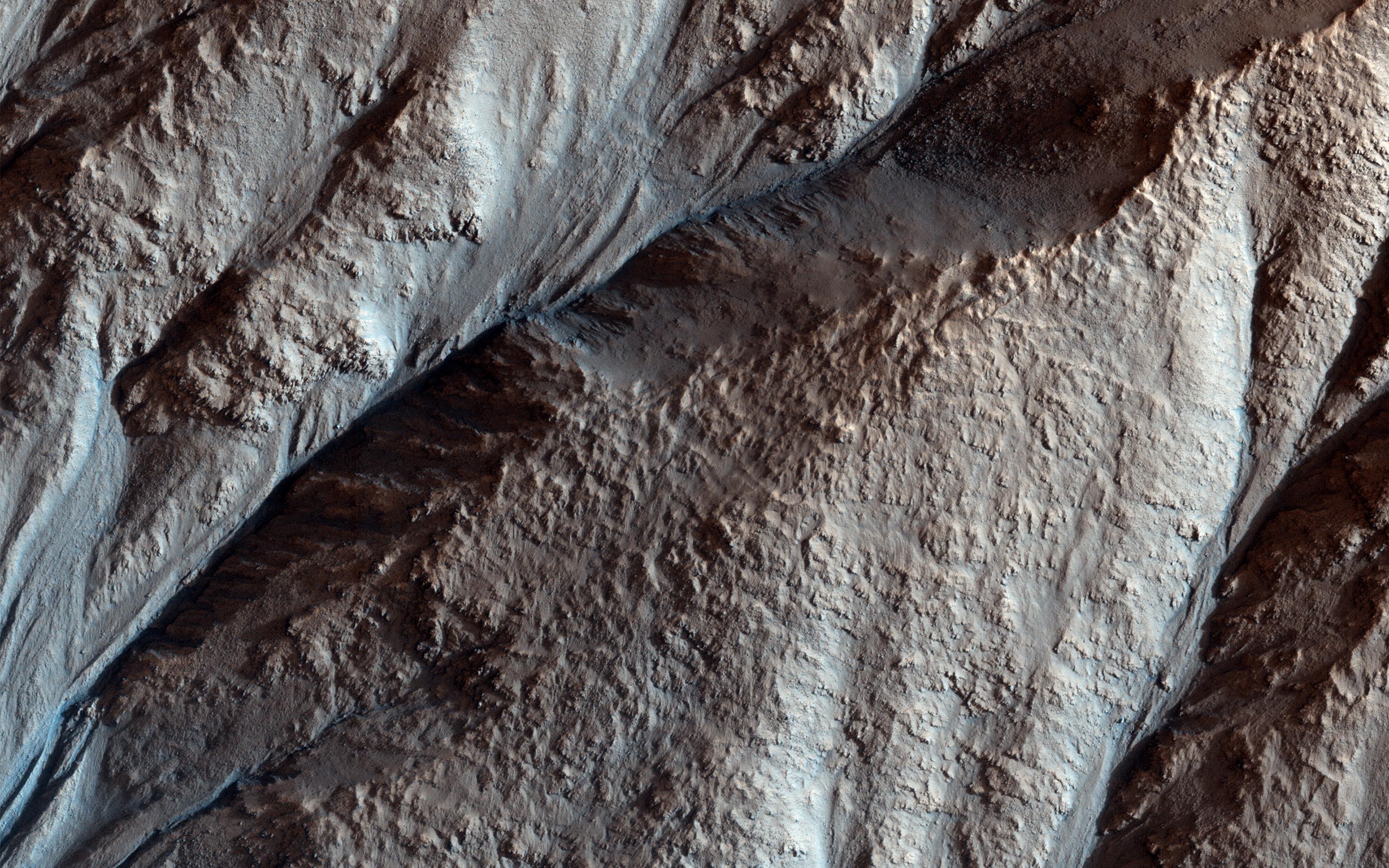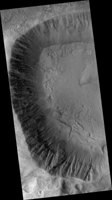
|
Crater Gullies and Fractures in Acidalia Planitia
- Click the image above for a larger view
- Full-Res JPEG (2880 x 1800) (1.1 MB)
- Full-Res TIFF (2880 x 1800) (15.6 MB)
Caption:

Map Projected Browse Image
Click on image for larger version
This image was acquired on April 8, 2018 by NASA's Mars Reconnaissance Orbiter. This image shows the gullied western slopes of an unnamed crater (about 10 kilometers wide) in Acidalia Planitia. These slopes have gone through a complicated history of gully erosion of the bedrock layers in the upper section, followed by the formation of fractures along the lower slopes.
As the gullies continued to form, fractures cut across them and their debris fans in the lower part of the slopes. A prominent cliff has been eroded by more recent gully activity. The curved ridges and lobes on the crater floor, downslope of the debris fans, along with multiple fractures, suggest that the subsurface was ice-rich. This is an example of how geologists can utilize the concept of superposition to unravel the relative timing of geological events in the crater's history.
The map is projected here at a scale of 25 centimeters (9.8 inches) per pixel. [The original image scale is 29.8 centimeters (11.7 inches) per pixel (with 1 x 1 binning); objects on the order of 89 centimeters (35.0 inches) across are resolved.] North is up.
This is a stereo pair with ESP_055320_2185 .
Background Info:
The University of Arizona, Tucson, operates HiRISE, which was built by Ball Aerospace & Technologies Corp., Boulder, Colorado. NASA's Jet Propulsion Laboratory, a division of Caltech in Pasadena, California, manages the Mars Reconnaissance Orbiter Project for NASA's Science Mission Directorate, Washington.
Cataloging Keywords:
| Name | Value | Additional Values |
|---|---|---|
| Target | Mars | |
| System | ||
| Target Type | Planet | |
| Mission | Mars Reconnaissance Orbiter (MRO) | |
| Instrument Host | Mars Reconnaissance Orbiter | |
| Host Type | Orbiter | |
| Instrument | High Resolution Imaging Science Experiment (HiRISE) | |
| Detector | ||
| Extra Keywords | Color, Crater, Map | |
| Acquisition Date | ||
| Release Date | 2018-09-04 | |
| Date in Caption | 2018-04-08 | |
| Image Credit | NASA/JPL-Caltech/Univ. of Arizona | |
| Source | photojournal.jpl.nasa.gov/catalog/PIA22681 | |
| Identifier | PIA22681 | |
